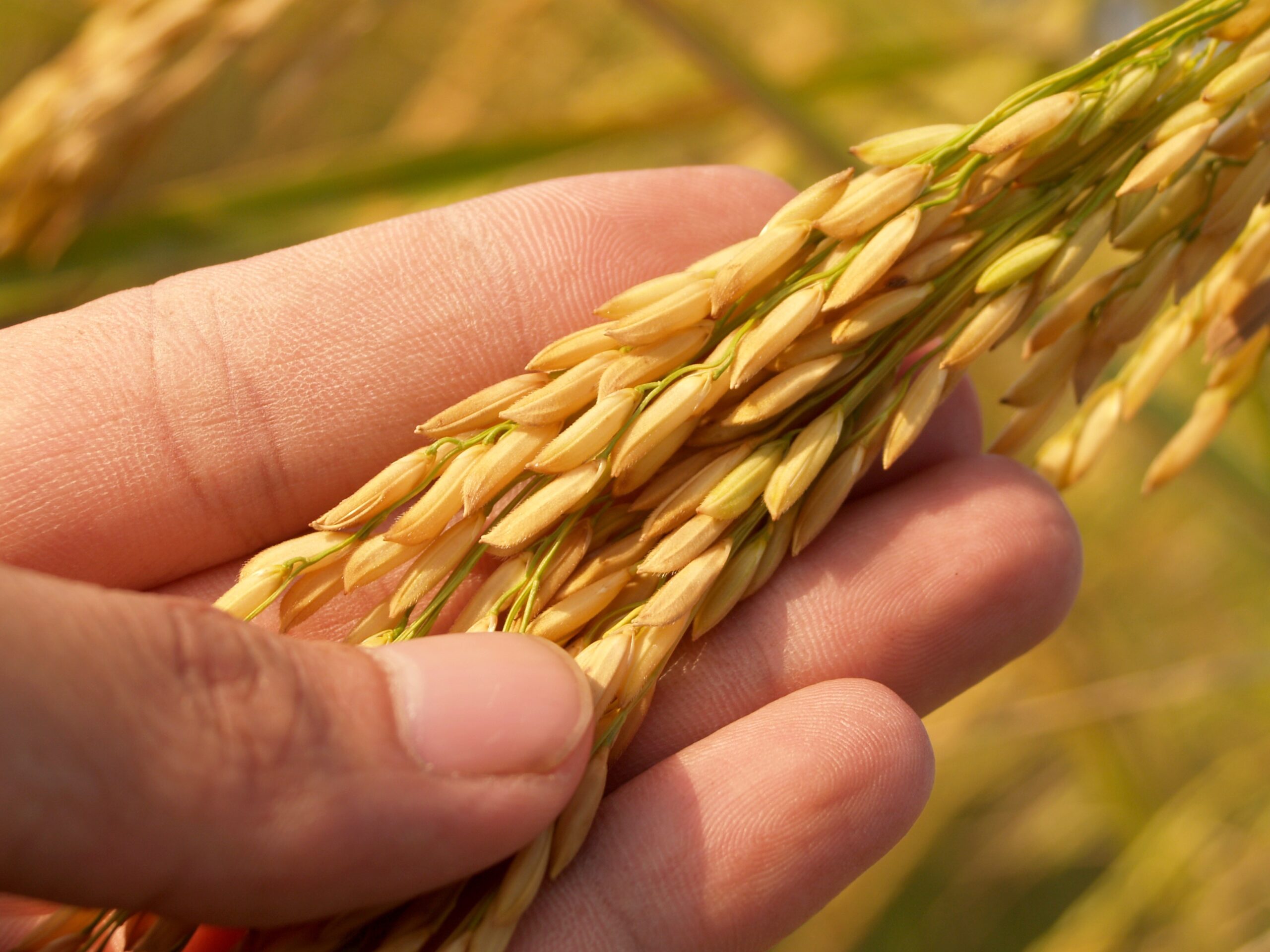Recently, the Biorefine Cluster Europe published an article that one of the students working on our project wrote. Ciara Beausang summarised what our project partners in Greece, DEMETER are doing on the project. The full article can be found here.
AgroCycle is evaluating agri-food waste value chains including a wide range of valorisation pathways such as biofuels and biopolymers. Rice bran is one value chain which has significant potential for high-value recovered products.
Rice bran: a significant by-product from rice processing
Research is progressing in AgroCycle as the Horizon 2020 project enters its second year. AgroCycle is addressing the recycling and valorisation of waste from the agri-food sector and the consortium is investigating a wide range of valorisation pathways. Rice bran is one waste stream that is being examined by AgroCycle for recovered products. Rice (Oryza sativa) is one of the most important cereal crops in the world, providing the bulk of daily calories in many societies. Rice bran is a significant by-product from rice processing, with an estimated annual global production of 70 million tonnes.
Novel applications
Rice bran and rice bran oil produced from cold-pressed oil extraction are being tested for a variety of novel applications in AgroCycle. Rice bran is a rich source of antioxidants which have potential health benefits and may be used as food additives. Preliminary baking tests were conducted to develop novel bakery or pastry products fortified with rice bran. The standardisation and optimisation of these recipes are still under investigation and more trials are planned to be carried out in the next months.
Rice bran extract is also being compared with synthetic antioxidants as an ingredient in active packaging. Rice bran oil has been tested as possible plasticiser for commercial biopolymers such as polyhydroxyalkanoate (PHA), polylactic acid (PLA) and cellulose diacetate (CDA) and as lubricating agent to produce biocomposites with natural fibres from potato. Rice bran oil is also being evaluated as a pharmaceutical compound for the effective delivery of poorly soluble drugs.
The AgroCycle Protocol: a blueprint for achieving sustainable agri-food waste valorisation
The ongoing research into these high-value recovered products will contribute to the AgroCycle Protocol, a blueprint for achieving sustainable agri-food waste valorisation. AgroCycle’s focus on efficient agri-food production systems, combined with reducing food waste along the farmer-retailer-consumer chain, ensures that it can contribute significantly to the European Commissions’ policy target of reducing food waste by 50% by 2030.
